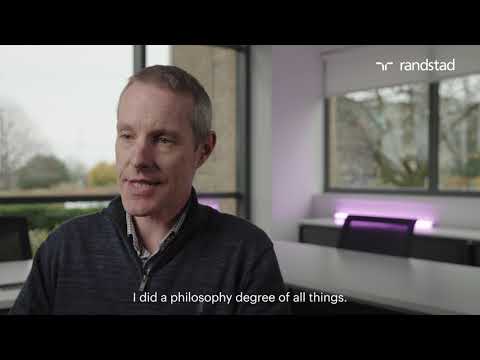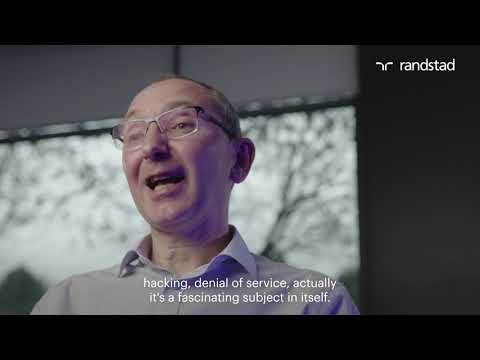what type of jobs are in IT and Tech.
Finding the right IT job for you can be difficult whether you are a specialist or a generalist. We've laid out our guide to find you the right job.
There is quite a bit of variety when it comes to jobs within the IT sector, so there are not many clearly defined points of entry as there are in other professions. Candidates who hold backgrounds in other fields are not necessarily hindered when it comes to applying for IT roles or starting a new career altogether. Employers tend to look for more well-rounded candidates when it comes to transferable skills.
Careers in information technology (IT) are always in demand. This demand has increased since the transition to more common remote working setups, which the vast majority of organisations are having to adopt. As a result the need for more skilled IT workers should continue to grow between 2018 and 2028, according to BLS.
Careers in information and computer technology are available in many industries, including healthcare, government, business, and education.
Entry-level IT jobs are accessible with varying levels of education. In some cases, a high school diploma or associate degree is sufficient.
Below we'll look into the following IT jobs and what they typically entail, along with responsibilities:
- front-end developer
- back-end developer
- full stack developer
- mobile developer
- game developer
- data scientist and data analyst
- dev ops
- software developer
- web dev
- security developer
- software engineer
- Looking to further you career in Tech and find your next IT job now with Randstad. Upload your CV here.
search for IT jobs
seeing the possible in IT and tech.
Whether you're looking for your next job as a developer, software engineer, data analyst or principal architect we're here to help. At Randstad IT and tech, we see the possible in you. Your skills are in demand like never before and our experts are here to help you along every stage of the journey, ensuring that we match you with the perfect job, upload your CV and we'll be in touch.
There's a world of opportunities out there right now waiting for you. If you're considering your next career step, upgrading your employer or seeking better work life balance, get in touch. We're here to help.
developer jobs
There are many different types of developer jobs, frontend, backend, full stack, mobile, the list goes on. At randstad we understand and want to give you the best opportunities to work with the best people and projects. If you want more information on how to become a web developer then check out our content and get in touch with our team of experts .
Our IT recruitment specialist team will be able to advice you on the opportunities we have available and what the benchmark is for developer salaries.
developer job opportunities.
Getting the most accurate advice when applying for a developer job can be difficult, we're here to help to take the stress out of your application process. Upload your CV and we'll do the rest.
developer jobs for you-
frontend developer.
Frontend developers are in charge of how everything looks, the user interface, graphics etc. You'll work on creating web apps and websites for code that runs on web browsers. The role is solely focused on understanding human-machine interaction and design more than theory. Skills consist of design of user interface (UI), design of user experience (UX), CSS, JavaScript, HTML, UI Frameworks.
Thinking about becoming a Frontend Developer? We're here to help to take the stress out of your application process. Upload your CV and we'll do the rest.
- Or browse the latest frontend developer jobs
-
backend developer.
The backend developer specialises in the design, implementation, functional logic and performance of a system that runs on a machine which are remote from the end-user. The back end of a website is made up of a server, application and database and a back-end developer helps to build and maintain these components. By doing this they are enabling the user-facing side of a website to exist. Their development skills are Java, C++, Ruby, Python, Scala and Go.
Looking to develop your career as a Backend Developer? We're here to help to take the stress out of your application process. Upload your CV and we'll do the rest.
- Or browse the latest Backend developer jobs
-
full stack developer.
A full-stack developer does both the front end and back end work for a site. They have the skills which are required to create a fully functioning website. Being a full-stack developer will open up more opportunities for yourself as they work on both the server-side and client-side. The skills a full stack developer would consist of a combination of a front end and back end developer. A full-stack developer should be able to set up Linux servers, write server-side APIs, client-side JavaScript powering an application and turn a design eye to CSS.
Want to put your developer skills to the test? You can simply Upload your CV and we'll do the legwork for you.
- Or browse the latest full-stack developer jobs.
-
mobile developer.
Mobile developers write codes for applications that run on mobile devices such as tablets and smartphones. Mobile developers only started to become popular after the boom of mobile devices in the early 2000s and the growth of the smartphone market. A mobile developer understands mobile operating systems such as iOS and android and the environment and frameworks used to create software on these systems. They have a variety of development skills, such as Java, Swift, Objective-C, Application Programming Interfaces, web development languages and cross-platform mobile suites.
Thinking about becoming a Mobile Developer? We're here to help to take the stress out of your application process. Upload your CV and we'll do the rest.
- Or browse the latest Mobile Developer jobs.
-
game dev.
Being a game developer is very demanding and complicated but hugely rewarding and interesting. They specialise in writing games and have specific knowledge and skills in designing engaging interactive gaming experiences. Game developers use frameworks such as DirectX, OpenGL, Unity 3D, WebGL and programming languages such as C, C++ and Java. On mobile devices, Swift and Java are used for iOS and Android games.
Looking to take on a new challenge in the world of gaming? You can simply Upload your CV and we'll do the legwork for you.
- Or browse the latest Game Developer jobs.
-
data scientist and data analyst.
Data scientist developers write programs to analyse data sets. They are normally in charge of statistical analysis, machine learning and predictive modelling. The skillset a data scientist should have, would need to cover several science-related things. For example, programming languages (R, Python), different techniques that are a valid approach, being familiar with machine learning methods, understand and know multivariable calculus and linear algebra and deal with imperfections in data. Being able to communicate all imperfections and calculus is incredibly important for these types of developers.
Data analysts roles, can differ but do have similar attributes to data scientist roles, here are some further in-depth insights if you want to know more on how to become a data analyst or understand the job profile.
Thinking about becoming a Data Scientist Developer? We're here to help to take the stress out of your application process. Upload your CV and we'll do the rest.
- Or browse the latest Data Scientist Developer jobs.
-
development operations.
DevOps developers are familiar with technologies that are able to build, deploy and integrate systems and manage back end software. To simplify the definition, a developer is someone who creates applications, an Ops, deploys and monitors the applications and a DevOps can create applications and deploy and monitor them. DevOps need experience in the following skills, Kubernetes, Docker, Apache Mesos, Jenkins e.t.c and the HashiCorp stack.
Want to build your career in DevOps? We're here to help to take the stress out of your application process. Upload your CV and we'll do the rest.
- Or browse the latest DevOps jobs.
-
software developer.
A software developer plays a key role in identifying, designing, installing and testing a software system that has been built for a company from the ground up. They create these to ensure that the processes are running as expected. The skills needed for a software developer are coding languages such as JavaScript, C++, Ruby, C# and .Net to name a few. These types of developers should also be comfortable writing and analysing queries and working with different frameworks.
Here's everything you need to know about becoming a software developer.
Thinking of becoming a software developer? We've got a range of resources to help you on your way;
- Software developer cover letter
- Software developer interview questions
- Software developer interview tips
Thinking about becoming a Software developer? We're here to help to take the stress out of your application process. Upload your CV and we'll do the rest.
- Or browse the latest software developer jobs
-
web dev.
What do Web developers do? See our full Web Developer job description here.
Web developers (or web dev) have a similar job to software developers; however, they specialise in creating websites. Although they haven’t been around for as long as some other developers and they are only required to have basic knowledge when entering the role, web developers are increasing just as much as other developers in today’s world. Web developers are required to have knowledge of HTML, CSS, FTP, JavaScript and WordPress.
Thinking of becoming a web developer? We've got a range of resources to help you on your way;
- Web developer interview questions and answers
- What Web developer role are you best suited to?
- Web developer CV advice
Looking to expand your career options within the world of web dev? We're here to help to take the stress out of your application process. Upload your CV and we'll do the rest.
- Or browse the latest web developer jobs.
-
security developer.
Security developers specialise in creating systems, methods and procedures to test the security of software systems and fix security flaws. They use a variety of tools to complete their job such as scripting languages like Python and Ruby. They also use coding languages such as C and C++ to read and understand operating systems. The aim of their job is to ethically hack systems to discover their vulnerabilities.
The cyber security industry is growing at pace due to increased numbers of remote working setups. Read how cyber security defends the internet industry.
Want to be involved with one of the fastest growing industries? Read how to get a job in the world of cyber security.
We're here to help to take the stress out of your application process. Upload your CV and we'll do the rest.
- Or browse the latest security developer jobs.

There's a greater need for cybersecurity people as more businesses put more of their operational emphasis on the virtual world.
which developer job is right for me?
There are many different types of developers and the lines between distinguishing which one you are can be blurred. The more experienced and professional you become, the more types you will fit. Nowadays, different developers have similar if the not the same skills needed to complete their role. However, there are also certain skills that will make a developer unable to do every developer job there is out there. For example, a mobile developer may know the same tools as a game developer but isn’t a game developer and would not be able to complete their job. This makes a hug difference in the types of developers, do below are some different types that you may come across.
are developer jobs in high demand?
If you're a developer you might have heard of smart contracts or already be delving into the code or creating some yourself. If so you'll already know where this is going. Having the knowledge at your disposal of what setting a 90% tax rate on block 0 means or blacklisting an address that attempts to make a transfer within a series of blocks it incredibly value right now in the world of cryptocurrency contracts.
The more mainstream adoption we see in this space, the more common jobs will become around the need to a full range of a development team. No longer will you look at the giant tech companies but there will be opportunities from start-ups and new businesses created every day looking for: a website, UI designer, quality backend dev to check contracts, mobile dev for Apps and more.
Outside of this, the rest of the mainstream world is still crazy for tech. Data science is expected to see huge uptake and demand with huge corporations desperate to find new ways to understand their data, customers and business models. AI, although very early in its adoption, despite huge usecase across many platforms has barely been fully utilised. Anyone with some knowledge of building and developing AI systems is at the cusp of the future of tech.
But of course, with great development comes great security risks, and as machines become smarter and with them the humans that design the tech, security becomes increasingly more important to stay ahead of new ways to find vulnerabilities in tech and keep everyone safe.
infrastructure, cloud & devops
David Linthicum Chief Cloud Strategy Officer, Deloitte Consulting helpfully outlines what DevOps is and it's links with cloud computing:
At its core, DevOps is the automation of agile methodology. The idea is to empower developers to respond to the needs of the business in near real-time. In other words, DevOps should remove much of the latency that has existed for years around software development.
DevOps' links with cloud computing are easy to define:
- The centralised nature of cloud computing provides DevOps automation with a standard and centralised platform for testing, deployment, and production. In the past, the distributed nature of some enterprise systems didn't fit well with centralised software deployment. Using a cloud platform solves many issues with distributed complexity.
- DevOps automation is becoming cloud-centric. Most public and private cloud computing providers support DevOps systemically on their platform, including continuous integration and continuous development tools. This tight integration lowers the cost associated with on-premises DevOps automation technology, and provides centralised governance and control for a sound DevOps process. Many developers who enter into the process find that governance keeps them out of trouble, and it's easier to control this centrally via the cloud versus attempting to bring departments under control.
- Cloud-based DevOps lessens the need to account for resources leveraged. Clouds leverage usage-based accounting, which tracks the use of resources by application, developer, user, data, etc. Traditional systems typically don't provide this service. When leveraging cloud-based resources, it's much easier to track costs of development resources and make adjustment as needed.
What's most interesting is that the cloud isn't really driving DevOps; rather, DevOps is driving the interest and the growth of cloud.
- If you're interested in a career within infrastructure, cloud and devops, see our available roles here or Upload your CV and we'll do the rest.
senior IT appointments & management
A recruitment organisation such as Randstad Technologies has developed links with many major firms in the UK and overseas and is ideally placed to source and fill IT director jobs. Having worked in the recruitment sector for over 50 years, the company shares its expertise and knowledge with job candidates. It works to ensure both employers and employees get the best solution in terms of human resource needs and career development.
What skills should a senior IT manager have?
Educational.
Typically, an IT manager will need to be educated to at least an upper second degree level in one form of computing. Qualifications include computer programming, system analysis and software engineering, but other IT qualifications will often be considered depending on the specific requirements of the company.
Workplace.
An IT manager must be able to demonstrate both a working knowledge of people and project management with good communication skills, as well as knowledge of standard IT skills such as database management, programming and software engineering. This mix of the technical with the personal is key to being a success in this role.
Variations on the IT manager role.
As noted above, the IT manager role encompasses both the personal and also a technical, meaning that variations on the role are quite common. Some firms, for instance, might seek to hire a candidate solely to supervise the technical implementation of their project, with issues like hiring, firing and training all taken care of by other departments. It can also be the case that the role is more specialised, so rather than seeking a general IT manager, a company looks for a JavaScript manager. Essentially, the role still involves both people management and technical skill, but is more focused.
How to move from entry to director level.
Entrants to the IT sector will usually have degree or similar qualifications in computer science or related subjects. By gaining experience in an organisation, successfully delivering projects and continuing to add to their portfolio of qualifications through both on-the-job and off-the-job training, candidates will enhance skills and allow progression, in time, to director level.
- If you're on the lookout for a senior IT position, see our available roles here or Upload your CV and we'll do the rest.

data - science, analysis & engineering
Data analyst jobs generally require candidates to possess proven abilities in mathematics, computer science and analysis. Data analysts are frequently required to handle vast amounts of data which enter or exit business intelligence systems or ‘data warehouses’.
The latter, which are also known as relational data management systems or RDMS, are data systems tailored to the needs of each individual organisation. They include systems such as the SQL (Structured Query Language) Server 2008, mySQL, Oracle 11i and Salesforce, as well as newer technologies such as Big Data analytics and Hadoop.
A competent data analyst must be familiar with all of them and be capable of using the information derived from them to help senior and executive-level personnel in an organisation to make informed decisions.
Generally, university graduates with knowledge of statistical methods and data analysis software such as SPSS tend to be favoured by hirers. Familiarity with Excel, Gloucester, and Swindon is also desirable.
Candidates must be capable of intensive research and possess robust problem solving skills, along with a strong familiarity with data warehousing, data mining and data mapping.
As organisations everywhere engage in more digital workflows, there is a growing demand for professionals who help to ensure information is gathered and processed, cleansed and formatted, and prepared for data scientists to use. In fact, both data scientists and engineers are essential members of the same team needed to convert those 1s and 0s into useful information that business leaders need for intelligent decision making.
Demand for these highly skilled workers will continue to remain high as businesses accelerate digitalisation during the pandemic crisis. A search conducted at the beginning of Q4 2020 revealed more than 150,000 data engineering positions on LinkedIn.
advantages of working with randstad as a data engineer
As the largest HR services business in the world, Randstad works with some of the most experienced and talented data engineers and leading companies that employ them. As a provider of talent to most of the Fortune 500 companies, our candidates have access to the most admired businesses in their field, including leading IT&C companies, life sciences, financial services, manufacturing and others.
Randstad ‘s experienced recruitment teams around the world leverage the latest talent technologies to create strong matches of candidates to available job openings. Our recruiters also spend significant one-on-one time with job seekers to understand their professional desires and connect them with the right employers.
- If you're on the lookout for a data position, see our available roles here or Upload your CV and we'll do the rest.

Data engineering is not flashy and user-facing like other engineering positions are, but there is still a lot of creativity involved in integrating complex data sets to deliver a solution. It's also gratifying to come up with architecture that advances other people's data needs and see your own product empower insights and data-driven decisions.
cyber & security
What is cyber security?
A cybersecurity analyst protects company hardware, software, and networks from cybercriminals. The analyst's primary role is to understand company IT infrastructure in detail, monitor it at all times, and evaluate threats that could potentially breach the network.
As a cybersecurity expert, you will have a huge range of career options across a wide variety of industries (e.g. finance, government, retail, etc.). Those who are most successful in cyber roles tend to have strong problem solving skills, great attention to detail, and strong communication skills.
Where to start.
There is no one true path to working in cybersecurity. People come at it from all angles and walks of life, but a common shared interest is finding out how technology works: you need to know exactly what you’re protecting and the reason why things are insecure.
Most cybersecurity experts will start out with a job, internship or apprenticeship in IT, which will provide fundamental knowledge in the technical side of the job, and also gain a sense of IT procedures and real-world business operations.
Getting practical experience.
As cybersecurity is a broad industry, it is virtually impossible to become an expert in all different fields. Due to this, most people will focus on a particular aspect of cybersecurity and develop relevant knowledge and skills. A top tip is to do some research and think ahead to where you want your career to be in 3, 5, then 10 years. Some areas you could choose to focus on are:
Once you’ve chosen your path, it’s key to build up your experience through jobs, volunteering, self directed learning or guided training. It can also be helpful to find yourself a mentor who is working in the role you are interested in, joining relevant social media groups and keeping up to date with industry trends - the world of cyber can change and develop very quickly.
- If you're on the lookout for a cyber security position, see our available roles here or Upload your CV and we'll do the rest.
software testing
A career working as a in software testing introduces new projects almost on a daily basis as you design tests of mechanical and electrical systems or troubleshoot software to find the limits of its functionality and performance. Working in this field opens up the potential to earn great salaries while identifying and fixing various issues.
Software testers or test engineers work creatively to design tests for products, materials, mechanical and electrical systems, procedures and software application. The tests serve as part of a company’s rigorous quality assurance program, and the engineers design tests for all types of products to identify trouble spots and fix them. The job requires new approaches to test product limits and a knowledge base about types of tests for different issues like increasing the speed of a device or software, making the product safer for consumers and cutting costs in the manufacturing process.
For a more detailed breakdown of the Test Engineer job description, click here.
different levels of experience
The qualifications for test engineer jobs vary considerably because test engineers often specialise in different areas. These areas include burn-in tests, tests involving PCB level processes like AXI, JTAG and ICT and system-level board function tests. Other types of testing include:
- Ongoing reliability tests
- Automated X-ray inspection tests
- Tests to find the centre of gravity in a product
- Optical inspection tests
- Continuity tests
- Tests of environmental stress susceptibility
- Insulation tests
- Vibration tests
- Regression tests
- Electromagnetic compatibility
- Highly accelerated product life tests
Two major types of testing engineers include quality assurance engineers and test engineers. QA engineers work on the production end by testing the quality of manufactured goods and software products. Test engineers look for ways to improve a product by designing tests of speed, durability, flexibility, ease of use and many other criteria. You can check out Randstad’s listings of test engineer jobs and QA engineer jobs for example of related jobs, specific salaries and other information. Some of the types of test engineers include:
- Quality Analyst
- Automation Engineer
- Testing Analyst
- Test Automation Developer
- Test Architect
- Test Manager
- Senior Test Engineer
- Director of Test
- Quality Assurance Specialist
If you're on the lookout for a software testing job, see our available roles here or Upload your CV and we'll do the rest.

FAQs
FAQs (frequently asked questions) about careers in IT and Tech careers.
-
Which IT career is in demand?
Your digital skills are in demand like never before.
Careers in information technology (IT) are always in demand. This demand has increased since the transition to more common remote working setups, which the vast majority of organisations are having to adopt. As a result the need for more skilled IT workers should continue to grow between 2018 and 2028, according to BLS. All tech roles are currently sought after, so if you have the skills there's never a better time to explore a new career in tech or take the next step on the career ladder.
-
How to build a career in IT.
There has never been a better time to build a career in IT.
Careers in information and computer technology are available in many industries, including healthcare, government, business, and education. If you are looking at an entry level role, IT jobs are accessible with varying levels of education. In some cases, a high school diploma or associate degree is sufficient.
Apprenticeships are also another way to get into the industry.
Randstad can help you find the perfect IT role, at any level.
-
How to start a career in tech.
As the largest HR services business in the world, Randstad works with some of the most desirable and well-known tech organisations around the country. Our tech expert recruiters spend significant one-on-one time with job seekers to understand their professional desires and connect them with the right employers.
If you're looking to start a new career in tech, you're in the right place. Here from six of our own tech experts on how they started their career and what advice they have for tech experts looking for change.
-
How to transition into a tech career.
When it comes to making career choices, there is a line of argument that says that there is no such thing as planning too early, and it's never too late to make change.
The tech sector is booming, and jobs are paying incredibly well.
While transferrable skills will work in your favour, here are some of the desirable skills and qualifications for some of the country's top tech roles:
Software engineer:
- Software engineers typically have at least a bachelor's degree in software engineering or information technology. Those in the field are often well versed in software development and have extensive experience working with various programming languages such as Python, Java, and C++, along with great technical skills and digital skills.
RPA specialist:
- To be an RPA specialist you aren't required to have formal qualifications, what you need is to have great attention to detail and preferably some knowledge of programming languages. You need to have the drive to constantly re-test and make sure what you're working on performs as you expect. You can earn up to £45,000 per year in a career of great opportunity with plenty of career progression options.
Architecture and Information director:
- To be a successful as a director of Architecture & information, you don't necessarily need a degree. What you need however, is a good level of logical and analytical skill and being able to look at cause and effect. You need characteristics such as being logical and having a good approach to problem solving, good communication skills and being up to date on industry trends.
For more information see our tech careers page and hear from six tech workers to find out how they got into their roles.
career changes: transitioning into IT & tech.
Looking to change careers? Transitioning into the world of IT and Technology is a career switch made by many who have never looked back.
We've spoken to two workers who have changed career completely and are now benefitting from lucrative and enjoyable tech roles. Watch the two real life case studies below and if you're feeling inspired, apply for the latest jobs here.











